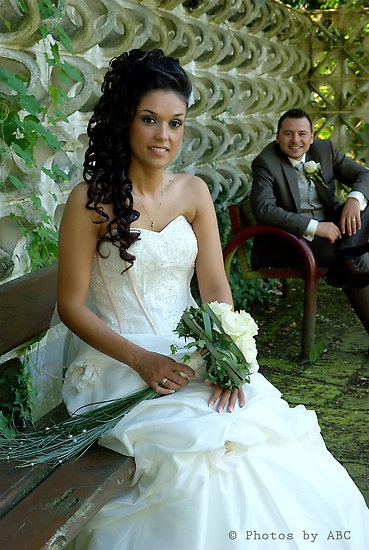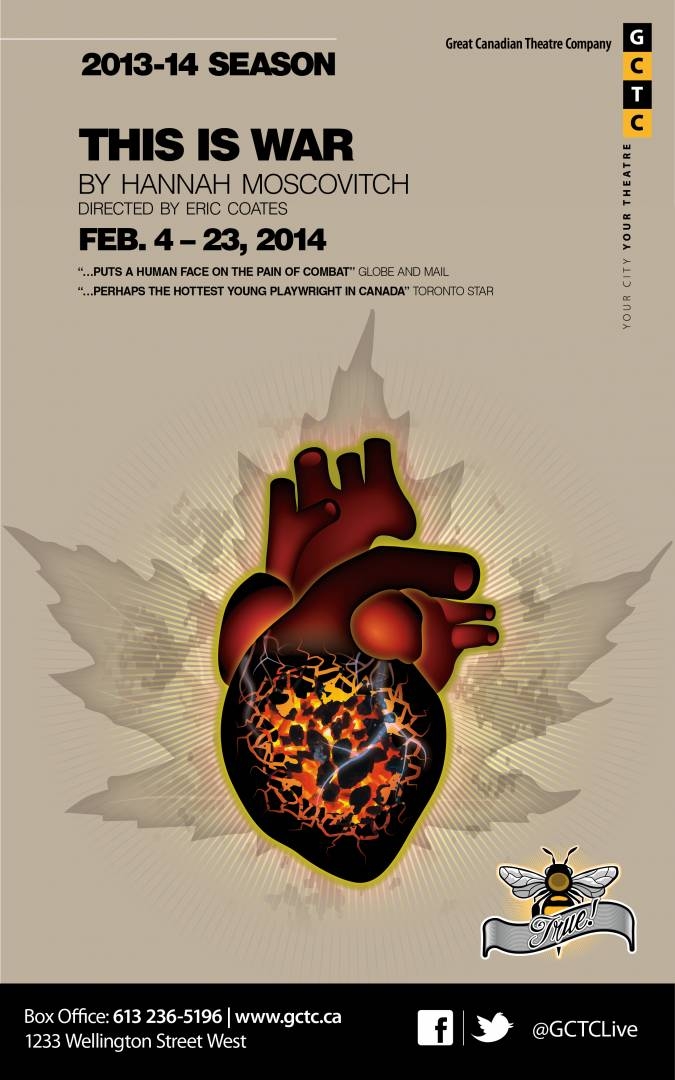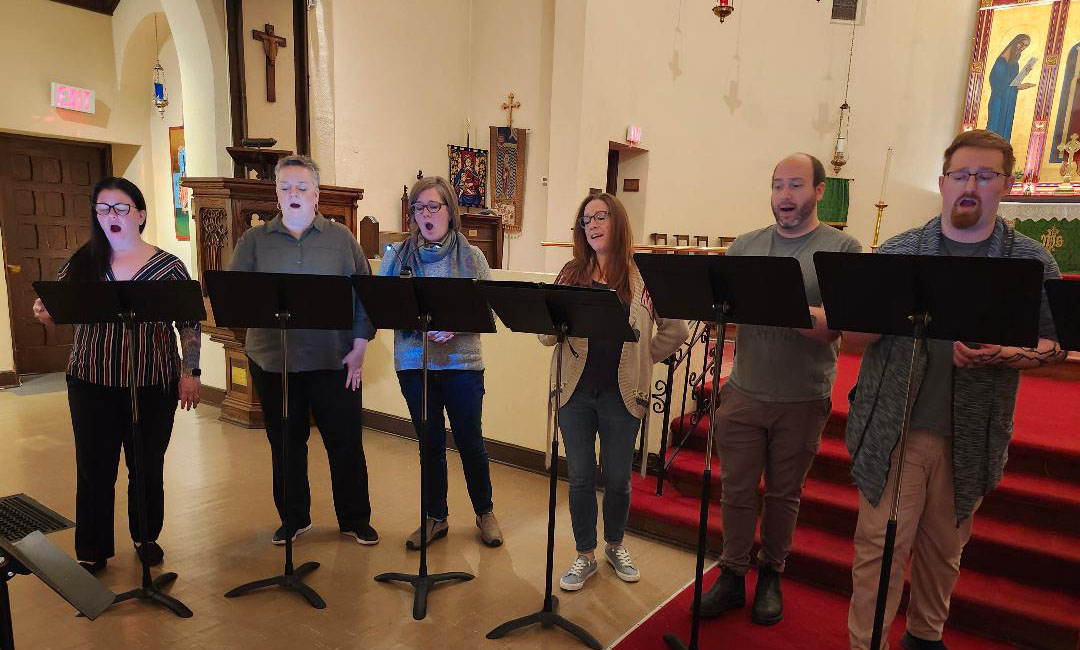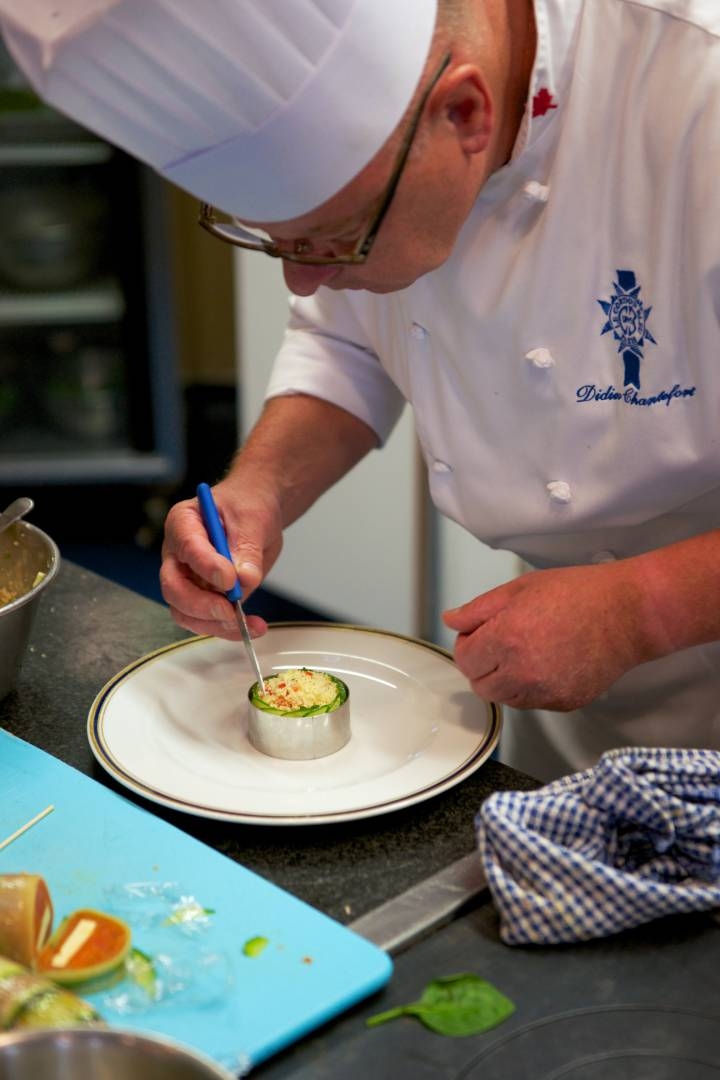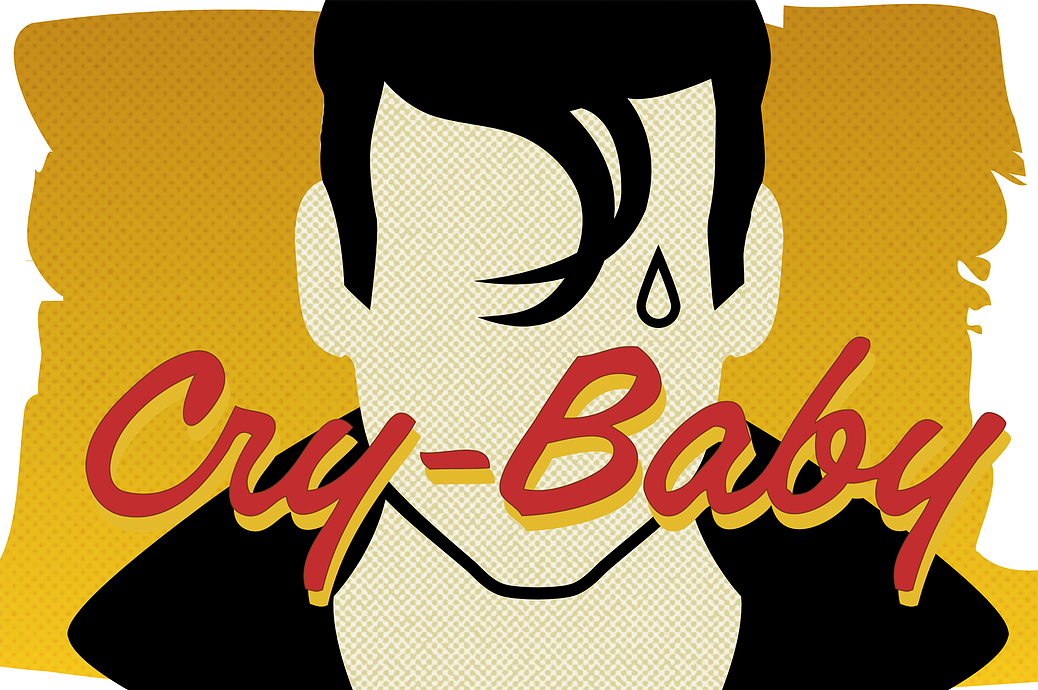
Tearing Up With the Cast and Director of Cry Baby
First they attacked with man-eating plants in Little Shop of Horrors. Then they decided to bring Shakespeare into the American Civil War with Othello. Now Theatre Kraken is falling back into the “waters” of cult cinema to unleash a campy John Waters flick turned hit Broadway musical. No, not Hairspray, the other campy John Waters flick turned less of a hit Broadway musical: 1990’sCry Baby, playing now until May 19that the Gladstone.
Set in all the teenage rebel without a cause angst of 1950s post war America (Baltimore, Maryland if you want to narrow that down a few clicks), the show focuses on Wade “Cry-Baby” Walker, the leather-clad leader of the delinquent “drapes”. Back them, it was definitely a time when it was not hip to be square so when Wade falls for ultra-square Allison his too cool for school world becomes rattled and rolled as the new lovers set out to rock the town inside out.
Set to a toe-tapping rockabilly soundtrack with music written by Fountains of Wayne’s Adam Schlesinger and lyrics by 13 time Emmy winning comedy writer David Javerbaum, the film could be looked at, in a way, as a sort of prequel to Waters’ most popular production. Hairspray takes place in the same city and also features a totally danceable soundtrack set to music of the era. The comparisons end there, though, as Wade Walker, ain’t no Tracy Turnblad. Let’s just say that while the more sentimental big sister is content to jump and jive on the other side of town, Cry Baby’sWade, along with the show’s tougher edge, are more comfortable on the wrong side of the tracks.
That’s not to say the show doesn’t have heart and a whole lotta’ goofiness, especially in the hands of Theatre Kraken. I mean, this is a John Waters based production after all, not West Side Story. With characters named Lenora Frigid, Hatchet Face and Toe-Joe Jackson, not to mention touching numbers like “Girl, Can I Kiss You With Tongue?” you can ensure a gleeful romp through a bit of watered down Waters awaits…which, you know, if you’ve seen Pink Flamingos, might just be your bag.
Ottawa Life Magazine had a chance to talk with show director Don Fex, and cast Nicholas Dave Amott (Cry-Baby) and Emma Woodside (Allison) about bringing that crazy Waters camp to an Ottawa stage.
Ottawa Life: John Waters is one of the cinema’s most eccentric and often controversial filmmakers. What was the first film of his you saw and what can you remember about the effect it had on you?
Don Fex:It was definitely Cry-Baby. I was like 17 at the time, and I remember thinking, "damn, this movie is raw." It didn't have that polished Hollywood sheen on it, and I really liked that.
Now, his film Hairsprayhas become a smash off screen in the form of a stage musical that then looped back around to another film. With that mega-smash, what had you turning to Cry Baby?
I love Hairspray, but it doesn't have the same edge that Cry-Baby does. They are both teenage coming-of-age stories, but there is just something more real about Cry-Baby, and at least in my opinion, Cry-Baby is a much more adventurous piece musically — it certainly rocks a lot harder.
Though the film version wasn’t well received at first (it’s now a cult classic!), the Broadway musical version was another hit for Waters with the production nominated for four Tony Awards. Why do you think Waters’ work translates so well to the stage?
I think because at the end of the day they are simple stories. The settings might be outlandish and the characters larger than life, but at the root, the storytelling is simple and relatable to a lot of people. It's that stripped down storytelling that makes them easy to adapt to stage: no superheroes flying in witches entering by bubble here, just pure emotion.
This isn’t the first time Theatre Kraken has put on a show that was once a cult-classic film. Little Shop of Horrorscomes to mind. As director of these productions, do you fancy yourself a fan of B-movies?
I tend to gravitate toward stuff that has a little bit of a darker edge. I would not say I am a fan of B-movies per se, more a fan of absurdism when it is done well, and it just so happens that it's that quality that makes for good B-film.
 What do you enjoy most about bringing these types of more offbeat productions to an Ottawa audience?
What do you enjoy most about bringing these types of more offbeat productions to an Ottawa audience?
A few things. For starters there is a real lack of it in this town. Musicals are expensive to produce, so a lot of other folk that do musicals in Ottawa tend to stick to things they think will draw the largest possible audiences, which is a shame, because there are lots of great musicals that never get stage time in this town because of it. But more importantly, I love doing it for the audiences: there is a different group of patrons who come out to these type of shows, and I think that if we are to keep theatre alive, we need to appeal to a wider demographic. There is also a very different energy in the theatre when I do a musical; it just hums, and as a producer that is a real rush.
Like Little Shop of Horrors, Cry Babyplaces us in another time with the music really amping up the setting. Little Shophad doo-wop, here we have rockabilly. How do you feel the rolicking’ tunes help accentuate the story of Wade “Cry-Baby” Walker?
Whereas Little Shop's music drove the story, Cry-Baby's music IS the story. The Drapes and Squares are divided along musical lines as well as social class lines. The rockabilly sound is just so raw and visceral that it gives the show its grit, and it also really helps Nick sink his teeth into the character. And the barbershop stuff that the Whiffles do is hilarious and funny but really a bit ridiculous.
One of the things I get from watching a Theatre Kraken production is the fun everybody seems to have bringing it to a crowd. As a director, how do you foster this kind of atmosphere while still maintaining everything runs without a hitch before opening night?
I like to think it starts with mutual respect for what I and the actors do. I tend to let them play around in rehearsals find their characters and give them some freedom with character choices. Then towards the end of the rehearsal period we tighten it up and make final decisions. I also tend to cast people that want to put in the work. I would rather cast someone that may not have a ton of experience on stage but is fun to work with and is willing to put in the work then an individual that is super talented but hard to work with. I think as a result of this Theatre Kraken gets a lot of new faces on stage that all want to do there absolute best for the company and audiences.
I’ve enjoyed how you’ve worked with a low budget in the past to create sets that don’t feel that way. How did you go creating post-war Baltimore for this show?
This was actually one of the harder sets to do; there are 7 very distinct locations in the show, and doing that in a black box theatre with basically no wing space or backstage area was an interesting challenge. With the help of a phenomenal graphic designer, we have created backdrop panels that change from scene to scene as the story unfolds. We think we've managed to do this in a way that isn't too disruptive to the action going on on stage and that does the show justice.
Do you have a particularly moment from rehearsals that stands out for you that you find really helped show the route this cast and production would take?
I have many, but one of the funnier situations was when we were doing music work for the song "Watch Your Ass." It was one of the first group songs we worked on in rehearsal so we were still setting the tone with the cast on just how precise we needed to be with harmonies in this show (at some points we are in 7-part harmony). The end of the song has the chorus singing the word "ass" repeatedly, so while working through the harmonies, it was literally 45 minutes of the cast just singing the word "ass" over and over again in different ways. It got pretty absurd, and a whole lot of giggles were had.
As mentioned, Waters can be controversial (Pink Flamingo’s, anyone?) but also campy fun romps. What do you think audiences not familiar with Cry Babywill most take from the production?
I hope they just walk away happy, having had a good time. It's very quirky humour, but at the end of the day, it's a story about being true to yourself and not changing who you are for anyone. There is a long history of musical love stories where one person usually changes so they can be with the other (usually the woman). That's not the case with this show, and it's that aspect that I think makes it special.
__________
Ottawa Life: Were you familiar with Waters’ work before this show?
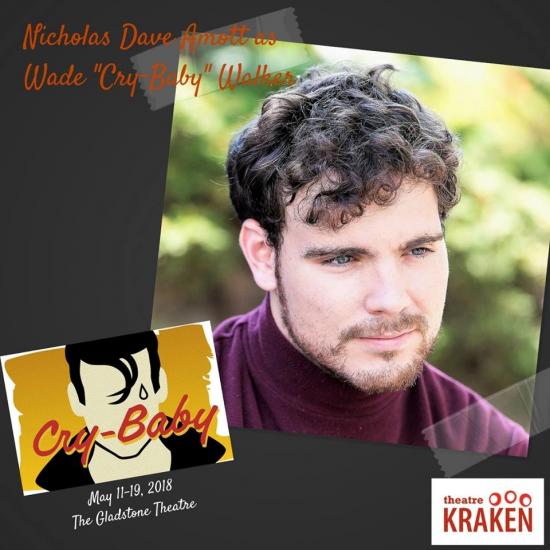 Nicholas Dave Amott: I’m ashamed to admit that Cry-Baby is the only Waters film I’ve seen to date, and that was the day of our first read through so it wasn't an entirely objective viewing. I’ve seen the stage musical of Hairspray, as well as its film adaptation, but I’ve yet to see the source material so that would be next on my watch-list…though Pink Flamingos is supposedly the stuff of legends. Immediately, I could see the charm in Cry-Baby. It wasn't a flawless film by any means, nor was it remotely trying to be. It was a production that you could see the whole cast and crew had fun making. A little wink here, a cheeky expression there, and a whole lot of whimsy.
Nicholas Dave Amott: I’m ashamed to admit that Cry-Baby is the only Waters film I’ve seen to date, and that was the day of our first read through so it wasn't an entirely objective viewing. I’ve seen the stage musical of Hairspray, as well as its film adaptation, but I’ve yet to see the source material so that would be next on my watch-list…though Pink Flamingos is supposedly the stuff of legends. Immediately, I could see the charm in Cry-Baby. It wasn't a flawless film by any means, nor was it remotely trying to be. It was a production that you could see the whole cast and crew had fun making. A little wink here, a cheeky expression there, and a whole lot of whimsy.
After seeing the film version, did you take anything from Johnny Depp’s performance as Wade to bring into your own?
For film-to-stage adaptations I feel you should always take the OG actor's performance into consideration, not for the purpose of replicating it, but to give you ideas of certain iconic traits that the audience MIGHT like to see from the character, or more importantly where you MIGHT want to take him. That's sort of what I was looking to glean from Johnny's performance. His "Baltimore bad boy" accent, his wild-eyed in-your-face attitude, his subtle looks of uncertainty – all useful tools to play with.
Wade has a pretty tragic background and is a bit of complex character. He has obstacles to overcome to win over his love. What aspects of the character did you find most interesting to tap into?
On one hand Wade is your typical 1950s rebellious teenager, on the other hand he's someone who has suffered unimaginable loss, grown up without parents, and been branded and exiled as public enemy number one because of his heritage. The whole "bad boy Danny Zuko" mask that he puts on in front of the upper classers – making their prejudice his strength – I wanted it to crack the moment he lays eyes on Allison. He's grown up hating "her kind", so this whole Tramp meets Lady situation…he doesn't know how to handle it! He's never flirted with any woman of her calibre, and so becomes as hapless in front of her as any teenage boy with a crush. THAT's the side of Cry-Baby I wanted to explore: that locked-away vulnerability that only Alison can bring out of him.
Rockabilly is really the perfect genre to go along with this production. How did you find the musical numbers while learning them for the show and are you now a rockabilly fan?
Just as Back to the 80's: the Musical unlocked a decade's worth of rock, new wave and pop music for me, this one did the same for rockabilly and blues. All roads lead to Elvis, but every road is slightly different – from Roy Orbison's remarkable ballads, to Jerry Lee Lewis' flaming keys, to Little Richard's manic power-vocals. In learning the songs I actually made a little list and tried to figure out which artist each song was trying to evoke. Orbison is the latest on-repeat in my library — that man, his music, his life: that is some inspiring class, right there.
__________
Ottawa Life: How would you describe your character Allison?
Emma Woodside:Allison starts off the show as a square and a good girl from the "right side of the tracks". She is also very held back and conservative and never really does anything wrong. However, when she meets Wade "Cry-Baby" Walker, she realizes that she no longer wants to be a part of that lifestyle, so she rebels against her social class. This shows that she is very decisive and confident in who she really is and isn't afraid to let it show. Allison is also very outgoing and open minded because she is willing to try out the drape lifestyle, and leave everything she's ever known behind for her happiness.
You share the most stage time with Nick. What was it like working alongside him as you helped shape your performances?
Nick is just such an amazing actor and performer in every single way so it definitely wasn't difficult to work alongside him. He also embodied the character of Cry-Baby perfectly right off the bat which made it much easier for me to shape my character around his as well as use my visions for Allison. Nick is also very outgoing and great to be around so it was so much fun working with him throughout the show.
What, would you say, was the biggest challenge for you in bringing out your portrayal of Allison?
I would say the biggest challenge in portraying Allison for me was not necessarily in the characterization, but in the vocals. There are some really high notes that Allison has to hit which on their own aren't extremely challenging for me, but having to continuously hit them every night was pretty daunting. So belting those notes and doing them well every performance without harming my voice was the most challenging part.
What is your favourite moment as the character and why that one?
My favourite moment as Allison is definitely when she comes to the realization that she no longer wants to be a square. She has a song where she starts to rebel and starts to do what she wants as opposed to what her social class expects of her. This is my favourite moment because as an actor I get to completely set loose and just have a blast on stage. It is also the first time everyone is truly introduced to the other side to Allison.
There are a lot of toe-tapping tunes in the show. What’s the one that most has you wanting to break out and dance?
The Finale in the show, "Nothing Bad's Ever Gonna Happen Again" is for sure the song that makes me want to break out and dance the most. It's a very upbeat and high energy song at the end of the show that brings everyone together and puts everyone in a great mood. It is such a great way to finish off the show, and leave everyone with a smile.

